Pros and cons of coalition governments
Coalitions can turn ‘political consensus into reality’ but can also be weak and unstable
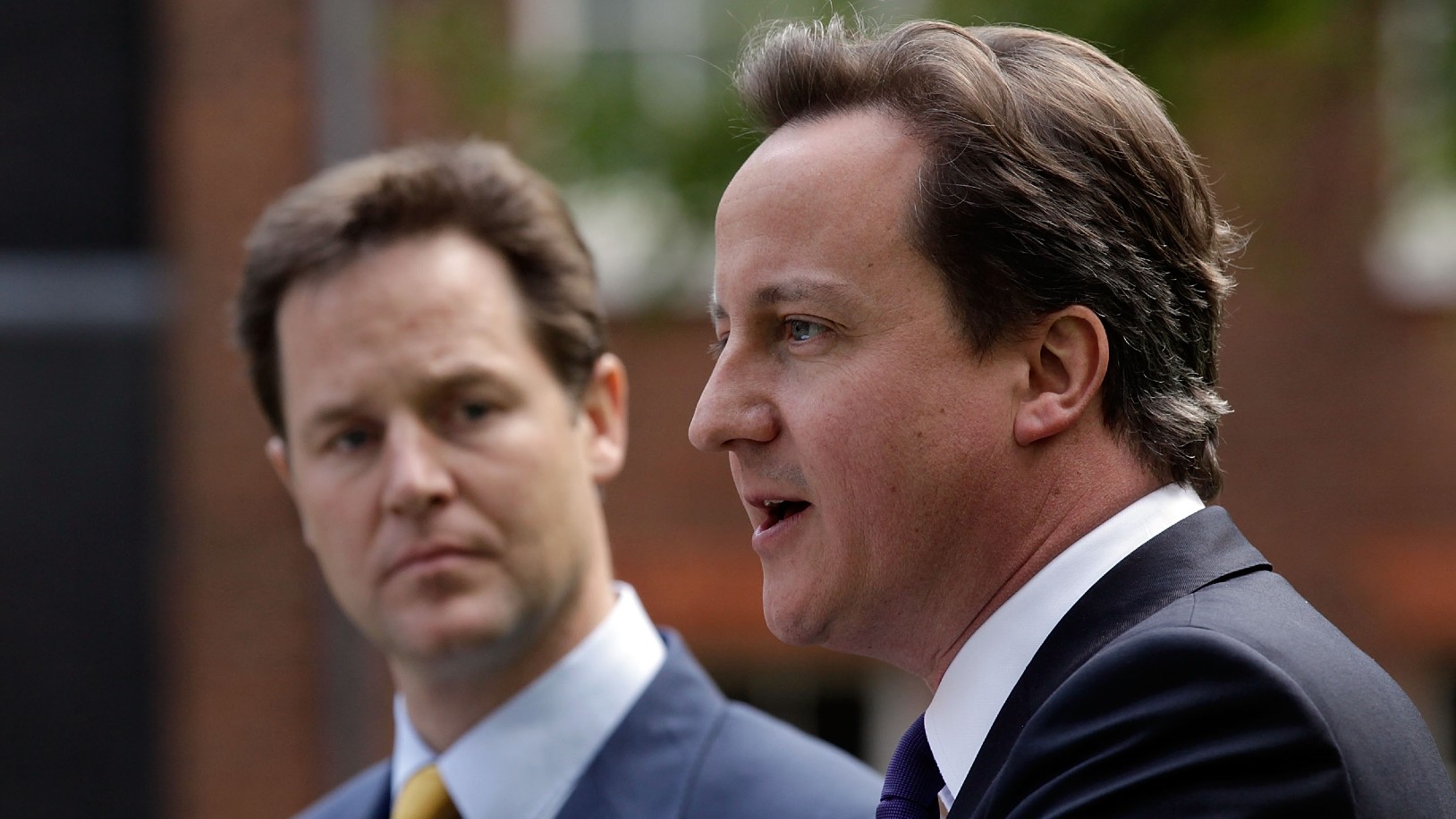
A free daily email with the biggest news stories of the day – and the best features from TheWeek.com
You are now subscribed
Your newsletter sign-up was successful
Westminster is abuzz with talk of coalition governments again after recent local election results suggested Labour could fall short of an overall majority at the general election next year.
Keir Starmer refused to rule out a coalition with the Lib Dems but has said he would not go into partnership with the SNP.
A survey by YouGov for Times Radio found that while a Labour majority was the preferred election outcome for most voters, many were also open to a coalition.
The Week
Escape your echo chamber. Get the facts behind the news, plus analysis from multiple perspectives.

Sign up for The Week's Free Newsletters
From our morning news briefing to a weekly Good News Newsletter, get the best of The Week delivered directly to your inbox.
From our morning news briefing to a weekly Good News Newsletter, get the best of The Week delivered directly to your inbox.
Here are some of the arguments for and against such a set-up.
1. Pro: tempers extreme views
Coalitions on the continent are often lauded for being “broad churches” that temper extreme views and deliver compromise. Analysing the “Grand Coalition” of left and right that governed Germany in the 2010s, DW said it was “a good instrument for turning political consensus into reality”.
In the UK, between 2010 and 2015 the Lib Dems repeatedly attempted to portray their role in the Coalition government as a mediating force on the Conservatives. The Lib Dems’ Danny Alexander, who was chief secretary to the Treasury during the coalition years, claimed his party “anchored economic policy in the centre ground and have constantly had to keep the Tories reined in”.
2. Con: waters down pledges
A party’s manifesto forms the cornerstone of its time in government, but a major problem with coalitions is that pledges presented in the run-up to election day are rendered unrealistic in the horse-trading that follows.
A free daily email with the biggest news stories of the day – and the best features from TheWeek.com
In a country like the UK, which is used to long periods of majority single-party rule, there is a perception that weak and indecisive coalition governments lead to the worst-of-both-worlds and put a block on big legislative progress. There is an argument to be made that neither the trade union reforms of Margaret Thatcher nor Tony Blair’s raft of improvements to public services could have been carried through as part of a coalition.
Things can also work the other way. In 2015, David Cameron pledged to hold an in-out referendum on the UK’s EU membership, reportedly believing he would fail to secure a majority and could ditch the manifesto commitment as part of a new coalition deal with the Lib Dems. Needless to say things turned out very differently.
3. Pro: better than minority
The closest the UK has got to a minority government in the last 50 years was from 2017-19 when Theresa May was forced into a confidence-and-supply arrangement with the Democratic Unionist Party (DUP) after her decision to call a snap election backfired disastrously. What followed was two years of political stasis and stagnation that came to be defined by the “Brexit forever wars”, dominated by endless parliamentary manoeuvring that saw legislation repeatedly fail to pass.
The experience appears to have resonated with the public, with 46% of respondents in the recent Times Radio YouGov poll saying hung parliaments were bad because they led to weak government, compared to just 27% who thought they were good because they forced parties to work together. In the event of a hung parliament, 42% of voters said that parties should form a coalition in order to provide stable government.
4. Con: dangers for smaller parties
“The Lib Dems’ demise will become a cautionary tale,” predicted FT Adviser after the party was all but wiped out in the 2015 election, slumping from over 20% of the vote share in 2010 to just 8% and losing all but 11 of its MPs. “The smaller party was ruthlessly punished for ‘propping up’ the Tories.”
As is often the case with smaller parties in coalitions, the Lib Dems were scapegoated for unpopular policies – such as the introduction of university tuition fees – while the Tories took credit for positives such as reviving the economy. It has taken nearly a decade for the party to begin to repair the damage to its reputation and it still remains way off its pre-coalition standing.
5. Pro: greater representation
“There are a lot of reasons to think coalitions are good,” said Professor Nic Cheeseman in South Africa’s Mail and Guardian in 2019. “They bring more parties into power which, in ethnically and racially divided societies, often means that they give a wider range of communities a taste of government. In a dominant-party system like South Africa, where the ANC has consistently won a large majority of the vote, this can bring into government parties that would otherwise be permanently locked out of power.”
In his book “Coalitional Presidentialism in Comparative Perspective”, Cheeseman conducted hundreds of interviews with MPs across nine countries with experience of coalition government. In every country bar one, a majority of MPs agreed that coalitions had “permitted the representation of diverse social interests” and “enhanced the quality of public policies”. Coalitions can also open up a wider talent pool of politicians and experts to serve in government.
In the UK, coalitions or other power-sharing arrangements already happen at a local level, where there are currently 91 district councils outside London with “no overall control” (almost one-third of local authorities), up from 75 before the most recent local elections. “This has not created instability,” said New Camden Journal. “The bins still get emptied and decisions are made, just usually with support from councillors outside of the largest political group”.
6. Con: held hostage by smaller parties
At the 2015 general election the Conservatives under Cameron successfully deployed fears of a “coalition of chaos” in which Labour would be beholden to the Lib Dems and the SNP. The campaign claimed then-Labour leader Ed Miliband would be forced to call another Scottish independence referendum in exchange for backing from the SNP. While this ultimately failed to happen after the Tories won a surprise majority, something similar happened during May’s time in office, when the DUP often wielded disproportionate influence on government policy by threatening to pull its support entirely to win concessions.
-
 El Paso airspace closure tied to FAA-Pentagon standoff
El Paso airspace closure tied to FAA-Pentagon standoffSpeed Read The closure in the Texas border city stemmed from disagreements between the Federal Aviation Administration and Pentagon officials over drone-related tests
-
 Political cartoons for February 12
Political cartoons for February 12Cartoons Thursday's political cartoons include a Pam Bondi performance, Ghislaine Maxwell on tour, and ICE detention facilities
-
 Arcadia: Tom Stoppard’s ‘masterpiece’ makes a ‘triumphant’ return
Arcadia: Tom Stoppard’s ‘masterpiece’ makes a ‘triumphant’ returnThe Week Recommends Carrie Cracknell’s revival at the Old Vic ‘grips like a thriller’
-
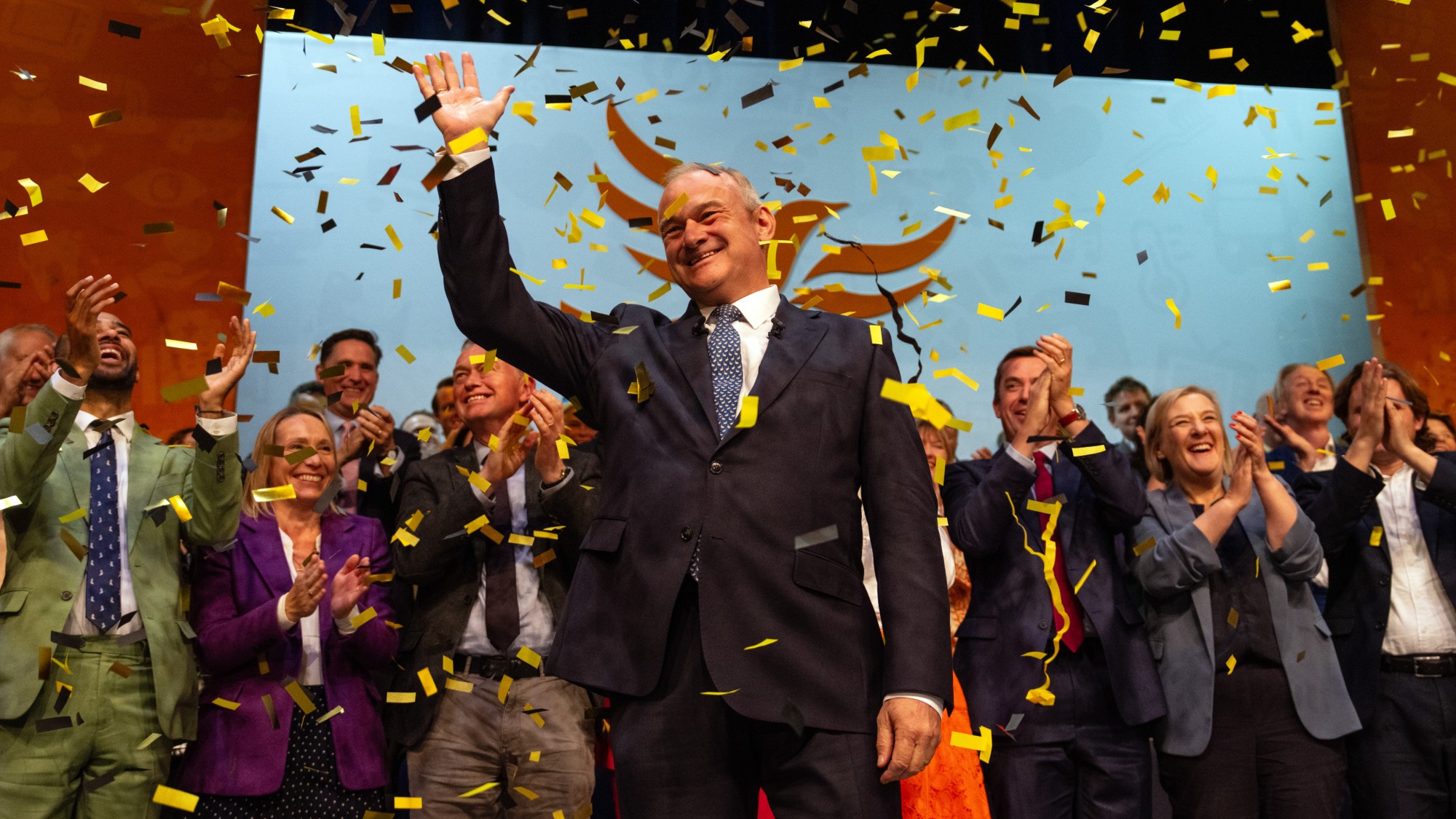 The Liberal Democrats: on the march?
The Liberal Democrats: on the march?Talking Point After winning their highest number of seats in 2024, can the Lib Dems marry ‘stunts’ with a ‘more focused electoral strategy’?
-
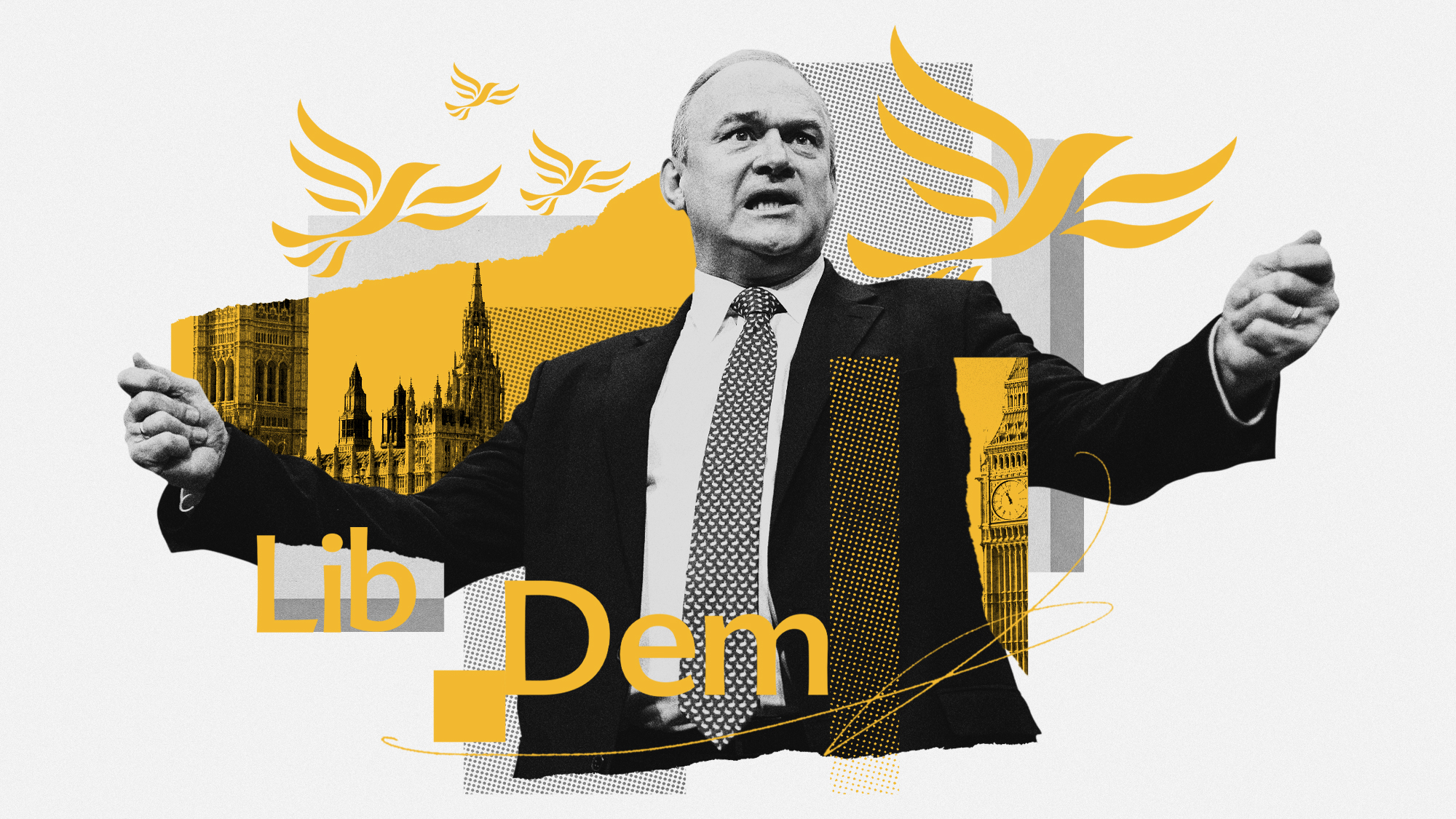 Can the Lib Dems be a party of government again?
Can the Lib Dems be a party of government again?Today's Big Question Leader Ed Davey is urged to drop the stunts and present a serious plan for the country
-
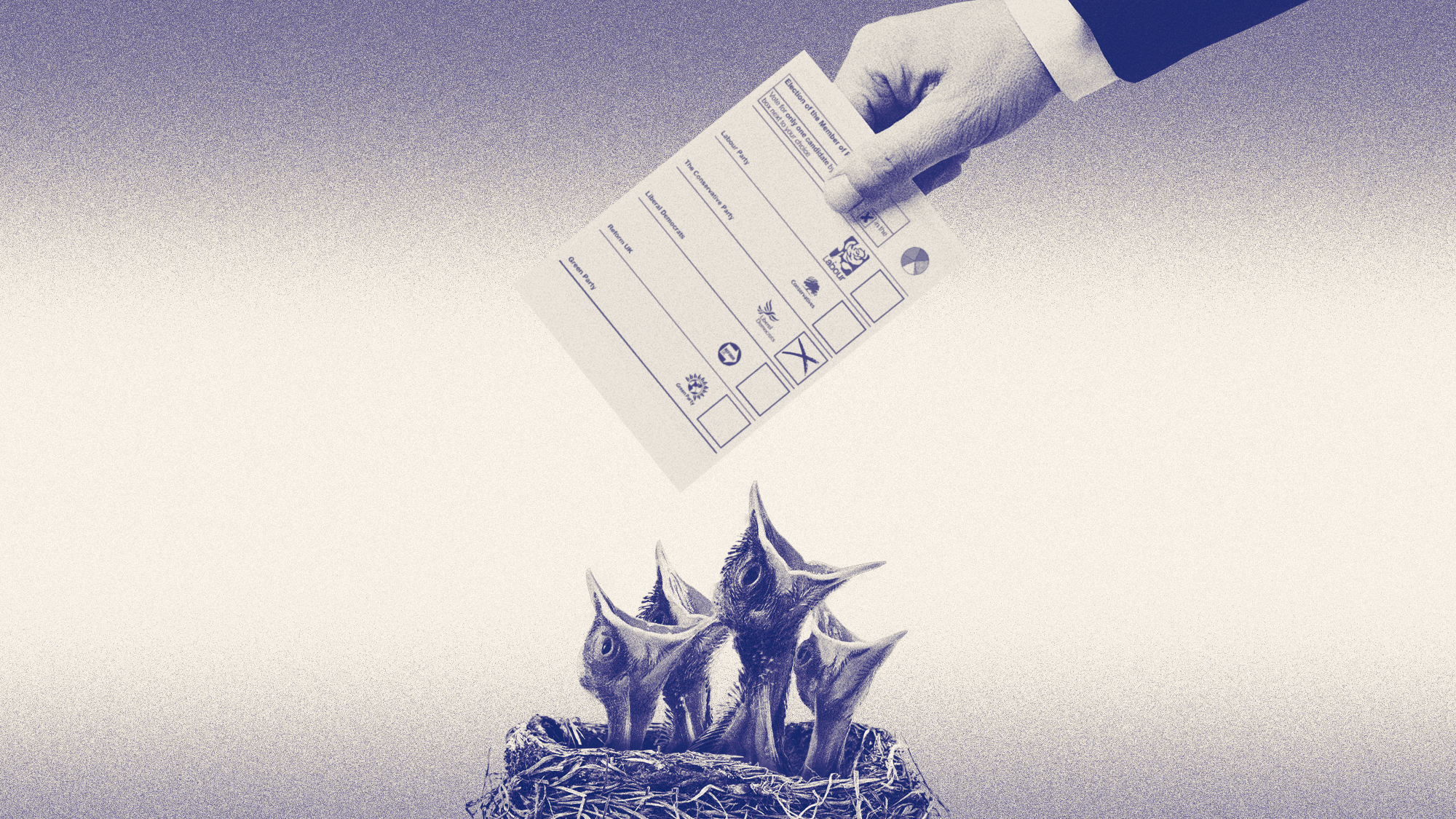 Is the UK's two-party system finally over?
Is the UK's two-party system finally over?Today's Big Question 'Unprecedented fragmentation puts voters on a collision course with the electoral system'
-
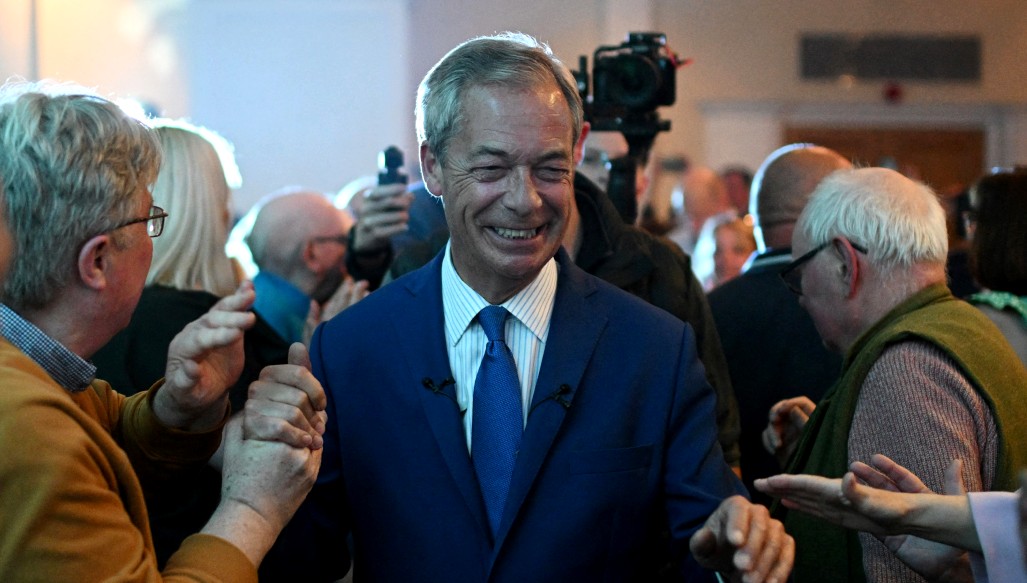 First-past-the-post: time for electoral reform?
First-past-the-post: time for electoral reform?Talking Point If smaller parties win votes but not seats, the 2024 election could be a turning point for proportional representation
-
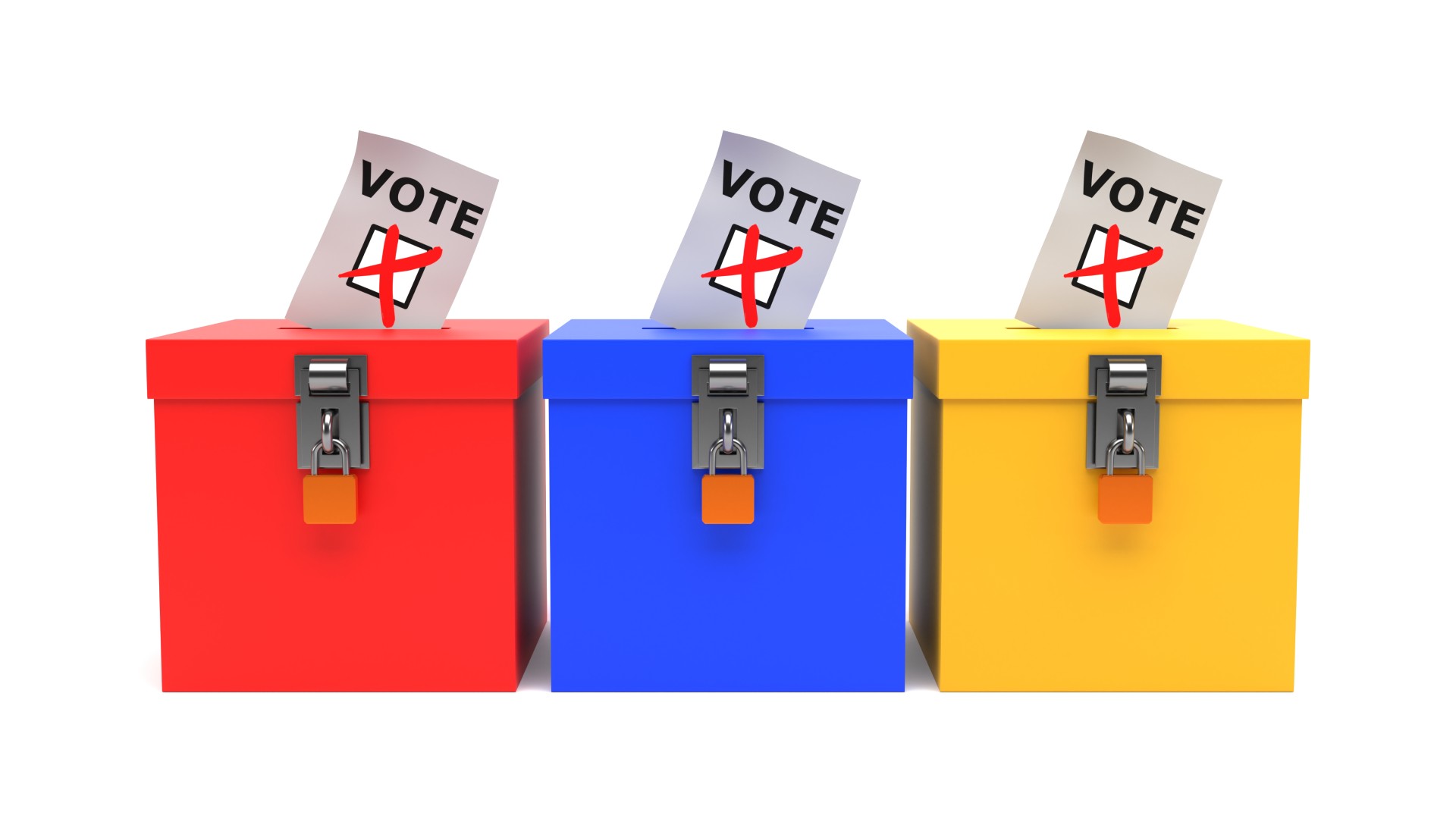 General election: will tactical voting make a difference?
General election: will tactical voting make a difference?The Explainer There is a 'mixed mood' within parties about the capability of voting tactically
-
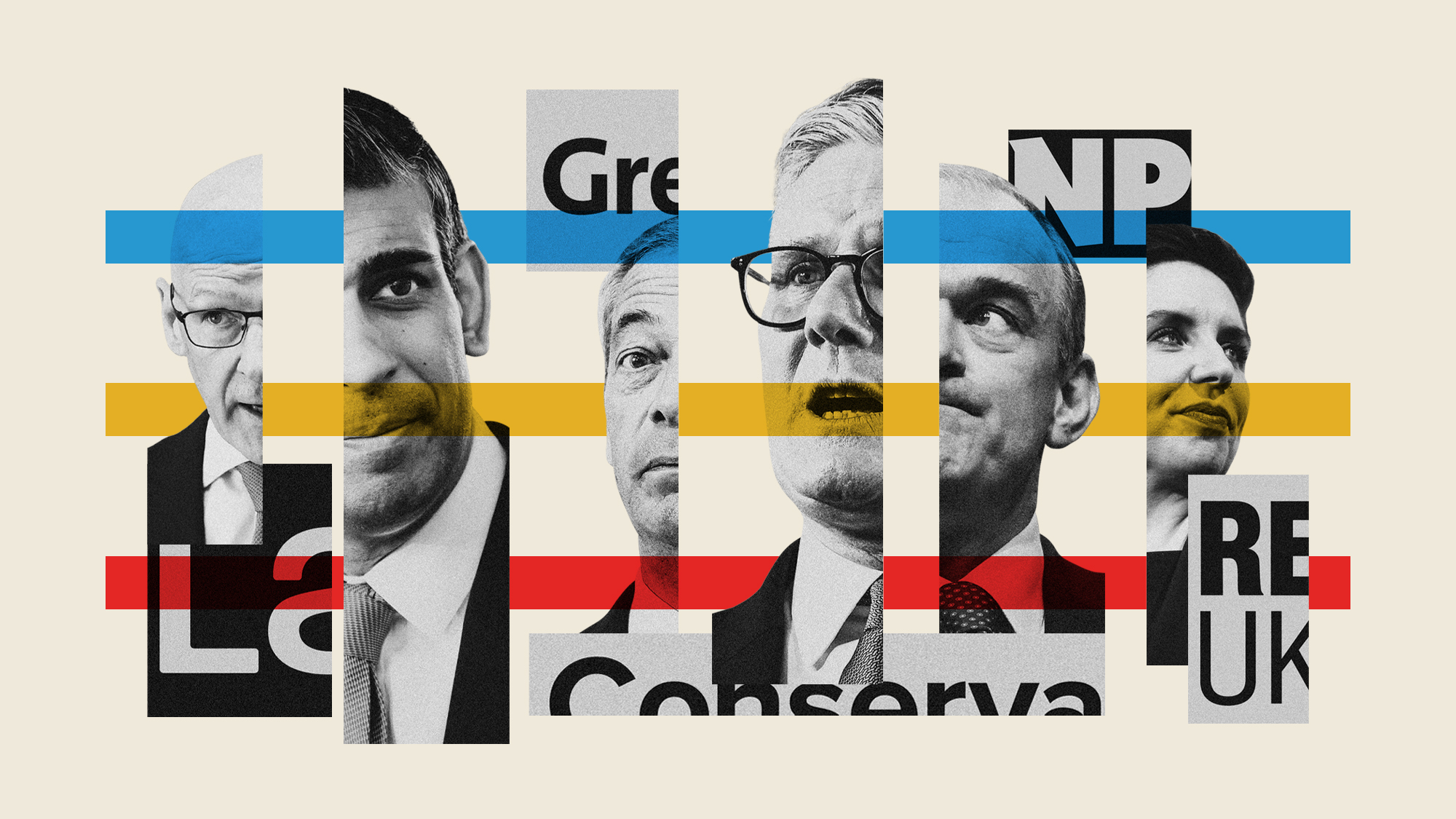 General election manifestos: how the main parties compare
General election manifestos: how the main parties compareIn depth Labour and the Tories 'leave voters guessing over policy on tax and spending'
-
 Who will win the battle to become Westminster's 'third party'?
Who will win the battle to become Westminster's 'third party'?Today's Big Question YouGov modelling suggests the Liberal Democrats will win many more than the 11 seats they managed in 2019
-
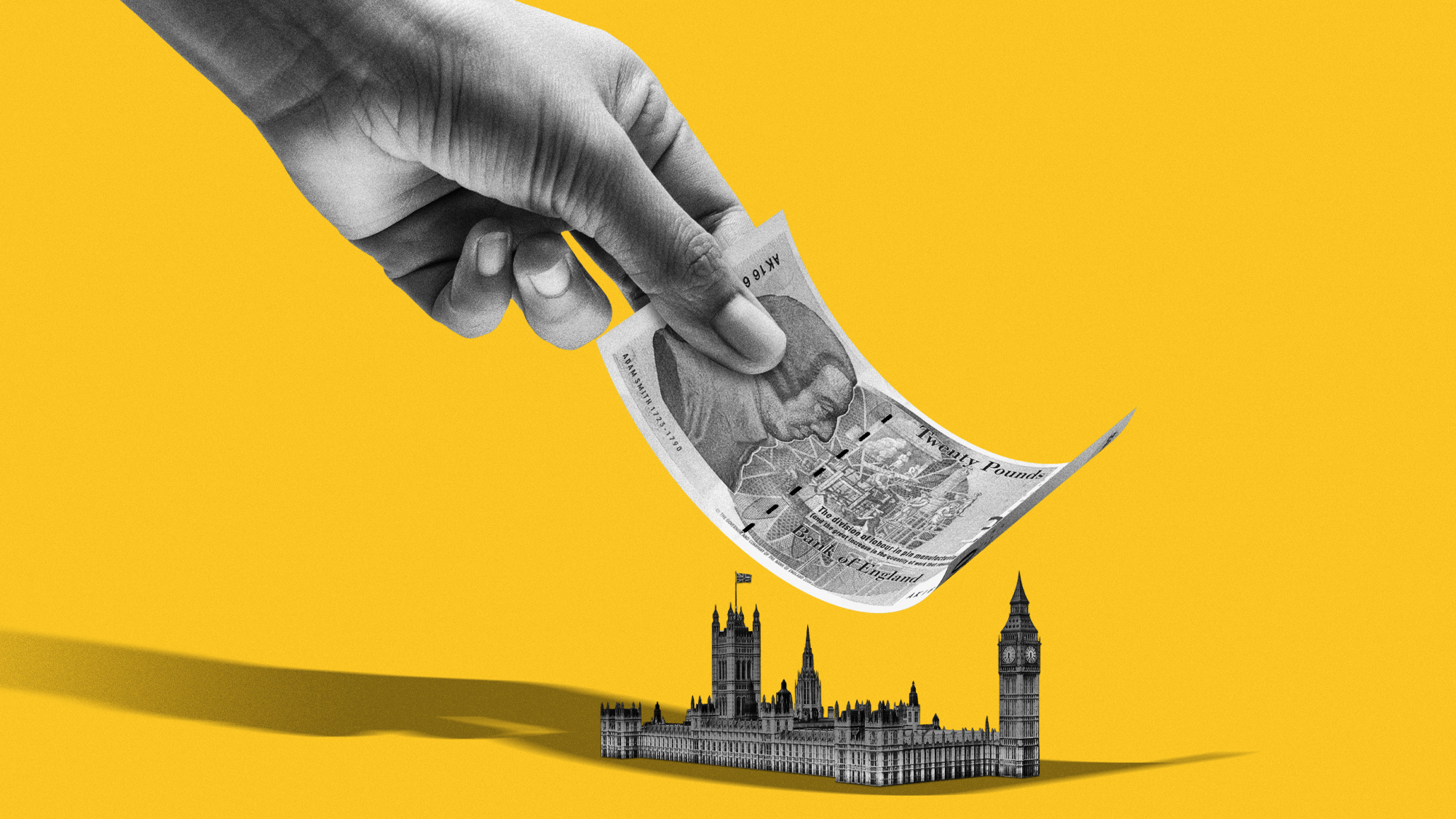 Britain's biggest political donors
Britain's biggest political donorsThe Explainer With the 2024 general election set to be the highest-spending contest ever we look at who is giving to which party and why